Showing 1-10 of 11 results
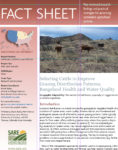
Selecting Cattle to Improve Grazing Distribution Patterns, Rangeland Health and Water Quality
This project is the first and only study that we are aware of that has evaluated whether grazing distribution has the potential to be improved through intensive breed selection. Most of the management approaches currently used to increase grazing uniformity, such as water developments and fencing, can resolve livestock grazing distribution problems on both private and public lands. However, these practices usually require large capital expenditures.
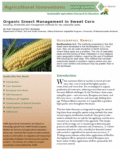
Organic Insect Management in Sweet Corn
This fact sheet discusses an integrated strategy for controlling three caterpillar species—corn earworm, European corn borer and fall armyworm—using methods that meet current organic certification standards. Any grower interested in methods that are safe for the applicator and the environment may be interested in this approach.
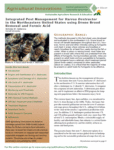
Integrated Pest Management for Varroa Destructor in the Northeastern United States using Drone Brood Removal and Formic Acid
This bulletin focuses on the management of the parasitic honey bee mite Varroa destructor (V. destructor) in the northeastern U.S. It contains information that will allow a beekeeper to: 1) identify V. destructor, 2) recognize the symptoms of mite infestation, 3) determine pest densities, and 4) implement an effective IPM program for keeping mite populations below the economic injury level.
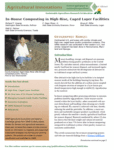
In-House Composting in High-Rise, Caged Layer Facilities
This fact sheet describes research on composting manure inside of the buildings housing laying hens. Research showed that the addition of a carbon source coupled with frequent aeration of compost in a layer house produced temperatures high enough to inhibit fly reproduction in the material, and odor problems are diminished.
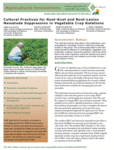
Cultural Practices for Root-Knot and Root-Lesion Nematode Suppression in Vegetable Crop Rotations
This publication discusses the use of non-host crops, sorghum sudangrass and castor bean grown as cover crops, RKN-resistant crops, and the application of poultry litter (PL) and PL compost to manage RKN and root-lesion nematode.
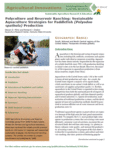
Polyculture and Reservoir Ranching
The purpose of this fact sheet is to describe two production systems, polyculture and reservoir ranching, that show promise of becoming popular methods for increasing fish production and profits in inland waters compared to a traditional monoculture system.
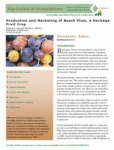
Production and Marketing of Beach Plum, a Heritage Fruit Crop
Beach plum (Prunus maritima Marsh) is one of several shrubby plums native to North America. The jams produced from this fruit command premium prices at farm stands and specialty markets, even in comparison with jam made from other locally grown fruit. However, the wild-collected supply of fruit does not meet this niche market’s demand.
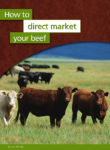
How to Direct Market Your Beef
How to Direct Market Your Beef portrays how one couple used its family’s ranch to launch a profitable, grass-based beef operation focused on direct market sales.
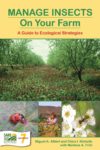
Manage Insects on Your Farm
While every farming system is unique, the principles of ecological pest management apply universally. Manage Insects on Your Farm highlights ecological strategies that improve your farm’s natural defenses and encourage beneficial insects to attack your worst pests.

12 Aprils Grazing Dairy Program
Tom Trantham's Twelve Aprils grazing program has been part of three Southern Region SARE projects. Tom has influenced scores of experienced and beginning dairy farmers through presentations at conferences and magazine stories. This online manual addresses the most often asked questions about his system.